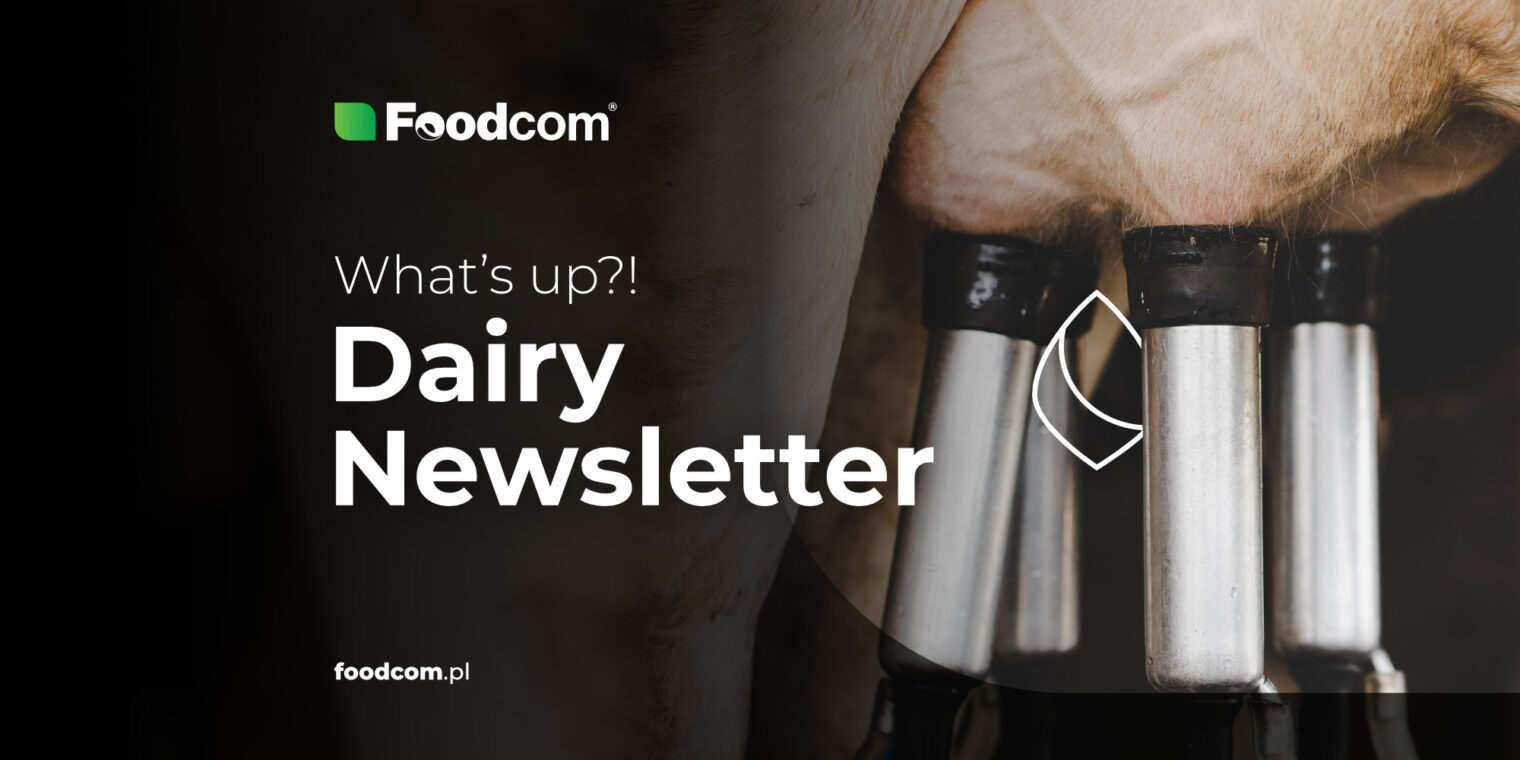Zusammenfassung
Inhaltsübersicht
Europe
Milk production in the European Union will continue to decline
The decline in milk production in the countries of the European Union began in 2021 and continues until now. According to forecasts, milk production in the region will not exceed 143.9 million tons in 2023, which is 0.55% less than in 2022. Environmental regulations and increasing production costs are cited as reasons for the decline in production. It looks like further changes are in store for the dairy market in Europe, as limited quantities of available raw material will force processors to rethink what is most profitable to produce from it.
An unexpected expert on Ireland’s climate plan
The Irish Department of Agriculture recently announced a controversial idea to step up the fight against global warming. The Irish government has proposed reducing the country’s dairy herd by 10%, which would mean culling 65,000 cows a year for three years. The idea has led to heated discussions on Twitter and elsewhere, with none other than Elon Musk taking part. In his comments, he stressed that such a policy must end and that sacrificing lives for ‚climate activism‘ is fundamentally wrong.
Raw milk prices in Russia are falling
Since the beginning of the year, raw milk prices have declined by about 15% due to oversupply. Some estimate that production exceeded actual demand by 1.7 to 2 million tons at the beginning of the year. The oversupply is likely related to an increase in raw milk production and a decrease in demand for some premium dairy products on the Russian market. This situation clearly has a negative impact on milk producers.
The Americas
The government order could be crucial for the U.S. cheese market
It was recently reported that the U.S. government may be planning to purchase 47 million pounds of cheese. The product is said to be destined for food banks. While nothing is certain yet, it is speculated that the order would run from October to June of next year. Such a large order could prove critical to the demand, supply and price of milk and dairy products in the United States. Who would have thought that the government, at the heart of capitalism, could influence prices in the marketplace through its actions…
Mexico promotes consumption of domestic milk
The Ministry of Agriculture and Rural Development and the Mexican Dairy Federation (Femeleche) have signed three cooperation agreements to increase the sustainable productivity of small and medium-sized livestock farms, strengthen the prevention and management of diseases such as bovine tuberculosis. Agriculture, farmers, industry and the government are working hand in hand to increase the popularity of milk produced in Mexico.
Elopak will open a new manufacturing facility in the United States
The well-known manufacturer of milk cartons has decided to further expand its activities on the American continent. With the construction of the new plant, the company naturally intends to consolidate its position and accelerate its growth in the region. The investment is expected to amount to $50 million. If all goes according to plan, the plant is expected to start production in the fourth quarter of 2024, creating more than 100 new jobs.
Asia & Oceania
Australian dairy farmers are optimistic about their future
According to the latest data, up to 86% of Australian dairy farmers expect to be profitable this season. Given previous downturns and volatile seasonal conditions, many farmers are taking a conservative approach to running their businesses, preferring stability to expansion. After recent seasons, 40% of farmers are concerned about the climate, but drier weather is predicted for this season, which should bring respite after rains and floods. The milk pool should stabilize in the 2023-24 season.
Iranian dairy prices raised without government approval
Iran’s dairy industry association has sent a letter to its members approving a slight increase in the purchase price of raw milk and an adjustment in the wholesale price of dairy products starting June 1. The move was made without the approval of the government agency that regulates staple food prices in Iran. The reason given was that the delay in approval is crippling the dairy industry. It is unlikely that dairy companies will actually implement these price increases without government approval, as they would face penalties.
New Zealand’s ratio of sheep to people is at its lowest in more than 1.5 centuries
New Zealand’s ratio of sheep to people is the lowest in more than 150 years, according to the latest data. As of June 30, 2022, the national sheep flock numbered 25.3 million sheep, down 2% from the previous year, indicating a continuation of past trends. Since 2002, New Zealand’s national sheep flock has shrunk by 14.2 million head, a 36% decline. This is the first time since 1850 that the sheep-to-population ratio has fallen below 5:1. Reasons cited for the significant decline include adverse weather conditions and increased tree planting as part of climate change mitigation programs.
Kategorien



![Überblick über den Sojamarkt [Globaler Bericht] Überblick über den Sojamarkt [Globaler Bericht]](https://foodcom.pl/wp-content/uploads/2025/10/global-report-SOY-poprawne-1-600x300.png)




